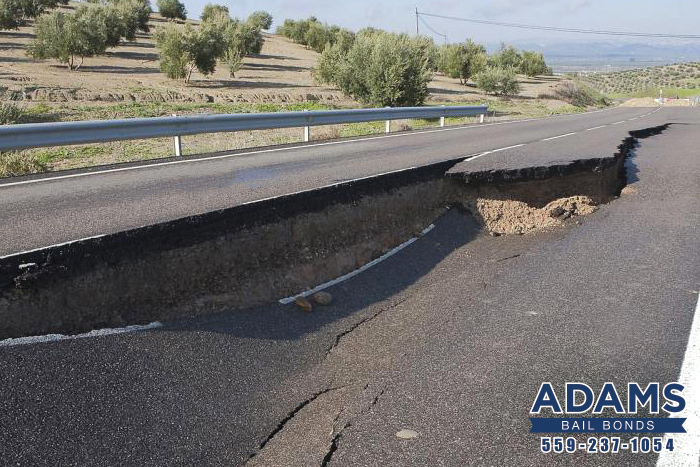Are You Prepared for a California Earthquake?
As Puerto Rico is rocked by large earthquakes, many people are being reminded of the dangers of earthquakes. Being wary and prepared for earthquakes is very important for anyone who lives in an earthquake prone area, such as California.
With the rarity of earthquakes, it can be easy to forget about them altogether. Then one hits and sends everyone into a panic because they’ve forgotten what they need to do when an earthquake strikes. This is why it is so important to have reminders and practice for earthquakes frequently. Doing so can help a person react appropriately in the event of an earthquake, and be prepared for what follows.
What to Do During an Earthquake
Depending on the size of the quake, the results can be extremely disastrous. Buildings can crumble and roadways can be ruined by all of the shaking. That doesn’t even take into account what can happen to a person.
In order for someone to stay safe during an earthquake, they need to follow the three basic steps:
- Drop.
- Cover.
- Hold On.
As soon as the shaking starts, a person should drop to their hands and knees. This way, they are more stable and less likely to fall over. Next they need to cover their neck and head, then try to get under a stable piece of furniture if one is close by. If not, a person needs to just stay away from windows and shelves with items that could fall onto them. After that, be prepared to wait out the shaking until it stops. Once it does, be prepared for aftershocks. If near the ocean, expect a tsunami and immediately head for higher ground.
If a person is trapped under debris, they should protect their eyes, nose, and mouth from dust. They should also try to send texts, bang on a pipe or wall, or use a whistle to be found.
Remember, after a severe earthquake, infrastructures may be down and a lot of people will be in need of help. Emergency services may take time to respond and cell reception may be spotty. If that is the case, text messages may be more reliable than phone calls.
California Looting Laws
After an earthquake, some people are very aware of the fact that emergency services have their hands full. This is why some people out there take emergency situations as a time to get some free stuff from stores. This act is called looting, and is a crime here in California.
California Penal Code (PC) 463 defines looting as the act of committing one of the following crimes during a state of emergency or a local emergency:
- Burglary, entering a structure without permission with the intent to steal something.
- Grand theft, stealing something that is worth $950 or more.
- Petty theft, stealing anything that is worth less than $950.
A state of emergency will always be declared after a severe earthquake, so trying to commit any of the above crimes is a sure fine way to get a person arrested for looting.
The penalties for looting are dependent upon what crime was committed. Looting by burglary and grand theft are wobbler offenses. This means they can be charged as either misdemeanors or felonies.
Burglary looting and grand theft looting as a misdemeanor come with:
- Up to 1 year in county jail.
- A max fine of $1,000.
- Up to 240 hours of community service.
- >Misdemeanor probation.
Burglary looting and grand theft looting as a felony come with:
- 16 months, 2 years, or 3 years in county jail.
- A max fine of $10,000.
- Up to 240 hours of community service.
- Felony probation.
Petty theft looting is always a misdemeanor offense that comes with:
- Up to 6 months in jail.
- A max fine of $1,000.
- Up to 80 hours of community service.
- Misdemeanor probation.
Be Prepared
Earthquakes are a real threat here in California thanks to the state’s location along fault lines, primarily the San Andreas Fault Line. As such, every resident should be prepared for an earthquake to strike at any moment. Everyone should have an emergency plan memorized and ready to go. This way, when an earthquake does eventually strike, they are prepared to deal with it.
On top of being prepared for an earthquake, people also need to be aware that looting will likely take place after the disaster. Looting is a crime and law enforcement agencies will deal with the looters to the best of their abilities if and when the need arises.
Are you prepared for an earthquake? Do you have an emergency plan and an emergency kit? What are your thoughts on the state’s looting laws? Do the penalties match the crimes, or should they be readjusted? Let us know what you think in the comments down below.

